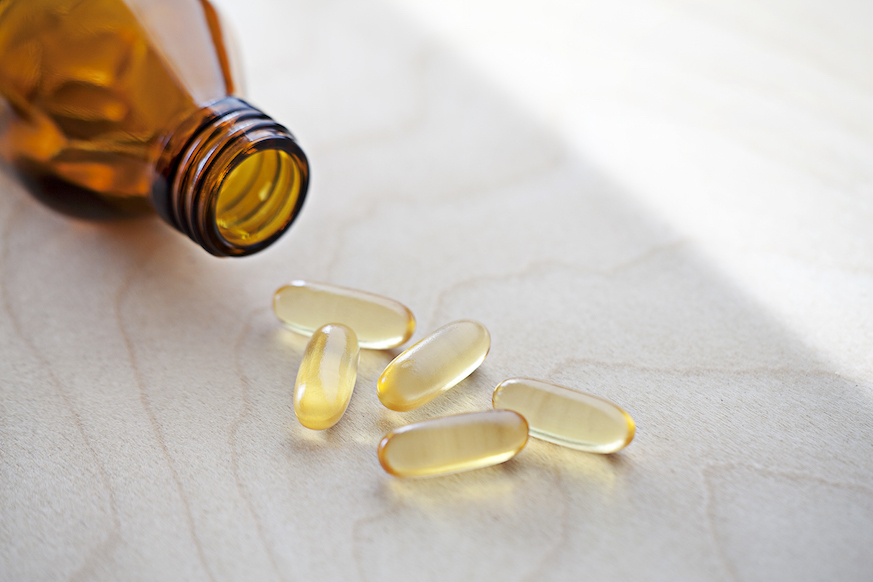Vitamin D has many health benefits. It helps your body absorb calcium, making it good for your bones. It also helps lower your blood pressure, preventing heart disease. Vitamin D deficiencies have been associated with an increased risk of diabetes 1, cancers including breast, pancreatic and prostate, and deteriorating bone health, including conditions like osteoperosis.
But when it comes to the “sunshine vitamin,” there is such a thing as too much of a good thing. And new research shows that Americans are over-supplementing. The study, published in the Journal of the American Medical Association (JAMA), reveals that 18 percent of Americans take too much Vitamin D, and three percent take dangerously high doses.
The recommended daily intake of Vitamin D is 600 international units (IU) for adults, and 800 IU for elderly folks 70 and older. Spending a few minutes in the sun each day and eating Vitamin-D rich foods like dairy products (milk, egg yolks, cheese) and fatty fish (tuna, mackerel, salmon) is usually adequate to reach those levels.
The researchers at University of Minnesota School of Public Health collected data on the daily Vitamin D intake of almost 40,000 adults between 1999 and 2014, and the numbers are up. Between 1999 and 2000, only .3 percent of participants reported taking 1,000 IU or higher of Vitamin D daily. In 2013, that number rose to 18 percent. Only .1 percent of adults took upwards of 4,000 IU daily before 2005, compared to 3.2 percent in 2013.
A dosage of 4,000 IU or higher daily can cause too much calcium to accumulate in the blood, leading to vascular calcification (hardening of the arteries). It’s also associated with and increase in bone fractures, kidney stones, prostate and pancreatic cancers, and death.
While it’s advised to wear sunscreen daily to prevent against skin cancer, it should be noted that doing so also decreases the amount of Vitamin D you would get naturally from the sun. If you think you’re not getting ample Vitamin D, be sure to consult with your doctor before supplementing.























